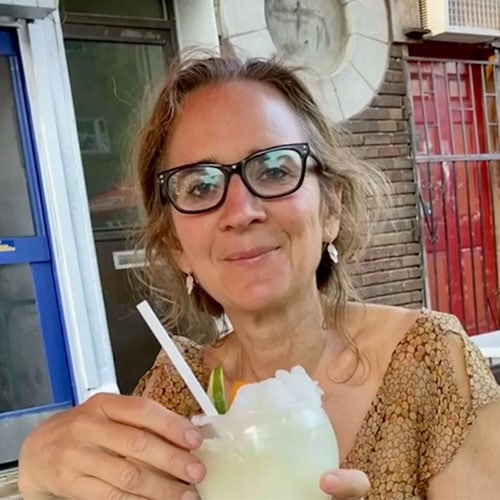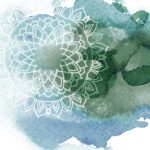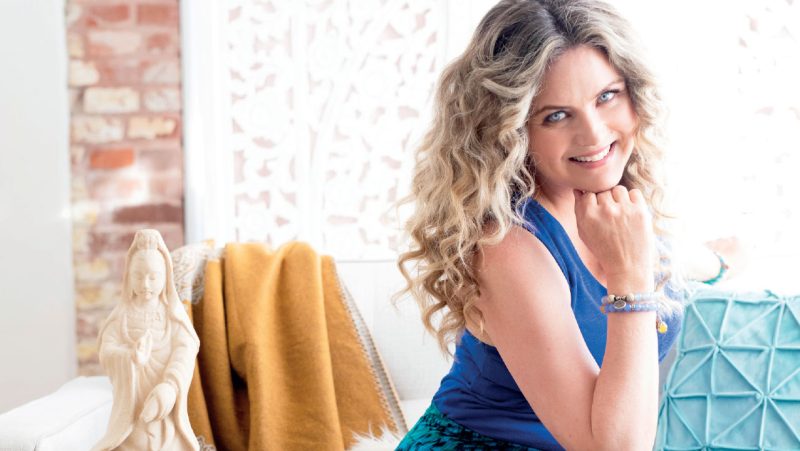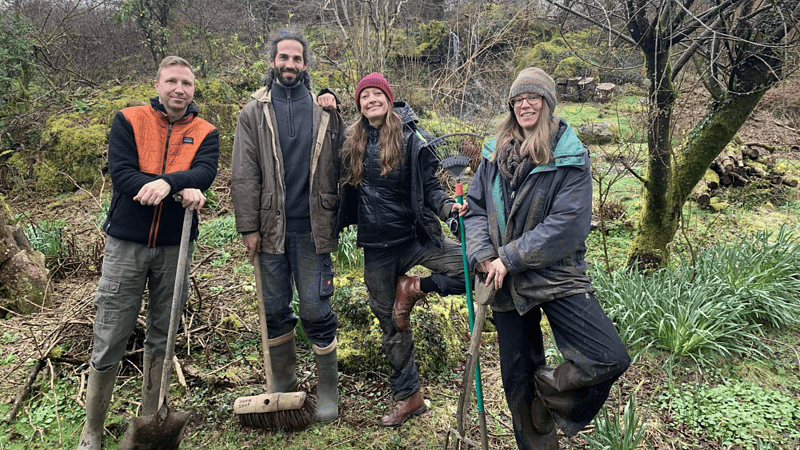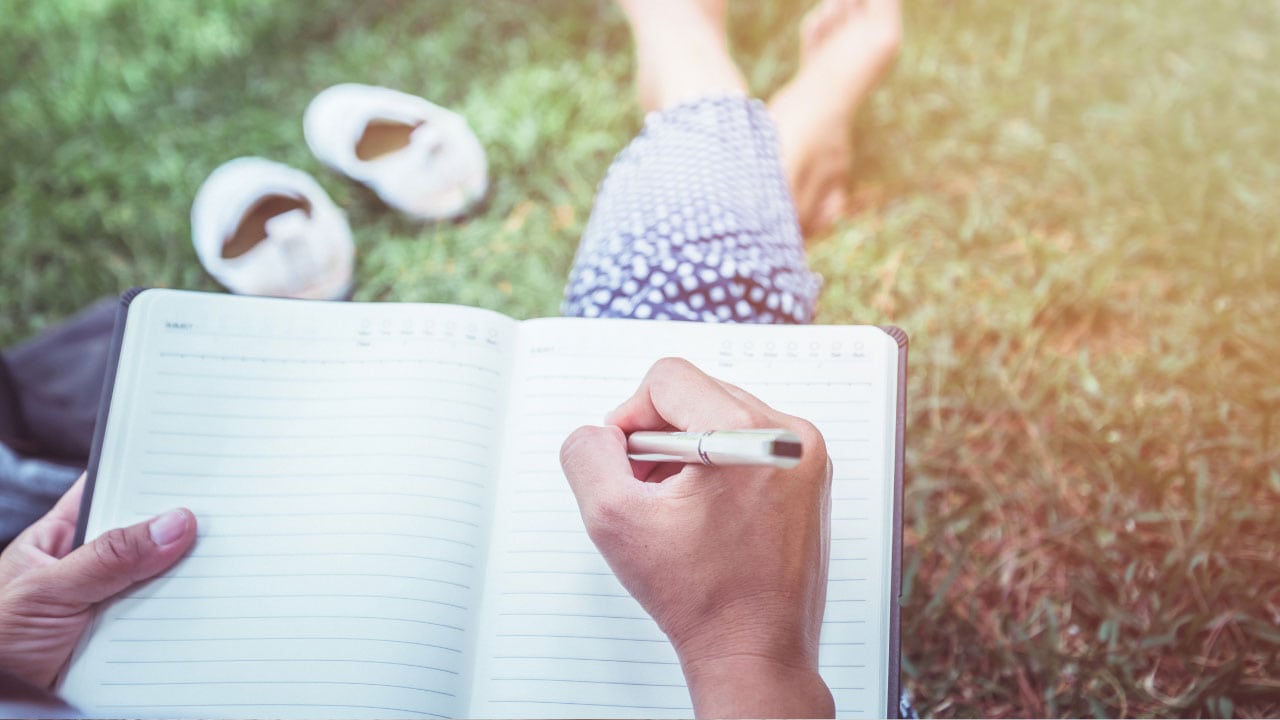
Learning to love yourself
3 lessons I learned writing a novel, going to an ashram and talking to psychics. By Sabine Walser
I teach creative writing, I encourage my students to publish (some do), and I love to write, but for me, writing has been a slow, mainly unpublished, undertaking. And yet it’s still worth all the time I spend doing it.
When I was in my early 30s, and a young mother, I’d hire babysitters so I could go teach English as a second language or visit the dentist or see a therapist. Occasionally, if there was still time leftover, I’d retreat to a café and squeeze in some uninterrupted writing.
I never had ambitions of being ‘a writer’, or of publishing. I dismissed myself and was racked with way too much self-doubt as a writer (and a person). But ironically writing was where I felt most at home. I enter into it and lose a sense of place, time and self. I don’t even judge the writing — only after, when I’m editing, does that critical voice enter, but never while I’m doing it. It’s like going under water to explore a mysterious terrain of what’s underneath, of what I don’t even know yet.
One time when I wasn’t due back home just yet, I sat in a café on a cold snowy day and wrote a story, in pen, in my journal, about a young woman bringing a hamburger to her therapist as a sexual offering. It was a bit lewd. It was also complete fantasy. Although I did have a therapist at the time, the idea of bringing him any sort of food, even a coffee, would have been absurd.
Eventually, a colleague published ‘Eating Hamburgers’. It even got translated into a French anthology in Paris. I used the story to apply to the Quebec Writers Federation mentorship program where I got paired with an excellent mentor. After a few weeks of fiddling with the story, my mentor finally said” “Sabina, maybe you’re not a short story writer, maybe you’re a novelist.”
And the floodgates opened: it felt as if I was given permission to loosen and stretch my writing beyond the constraints of a short story.
So now I had this story of a woman eating a hamburger with her therapist and my mentor’s encouragement to develop it into a novel. I was left scratching my head, wondering who is this woman? What’s her problem? Why does she need to bring her therapist a (messy, juicy) hamburger – like who does that?
I started writing, and cobbled together her family story, figuring out what would make her so neurotic. I had fun creating her.
Her father was a lusty, saxophone-playing accountant, her mother, an uptight, strict, control freak. They lost their three-month old baby to crib death – which of course tainted the whole family and my protagonist, who did a lot of therapy.
Lesson 1: Take myself seriously as a writer
The mentorship was invaluable because he took me and the writing seriously. This was my first lesson: take myself seriously as a writer. Seems obvious—but I had to learn it.
Hanging above my desk, I have a handwritten note by my then eight-year-old son. It says: “Well I’m not really a writer but I’m still ritin” – that’s how I’d felt. I never felt like a writer, but I was still writin’ and after a couple of years of writing, I had a complete manuscript.
I’m embarrassed to admit at one point the manuscript was over 400 pages. I tweaked and edited, but I made the rookie mistake of asking friends to read it before it was ready. One friend politely pointed out some issues that seemed unfixable to me. “Just write another novel!” she said. “Consider this practice.” Practice? After all that writing? Was she crazy? I didn’t look at the manuscript for months.
Eventually, I found my way back to it. I’m also embarrassed to admit how many psychics, palm readers, astrologists and other intuitives I’ve seen over the years, asking about my writing. One psychic, after a long pause, as she was connecting with her guides who were connecting with my guides, declared: “Do. Not. Give. Up.” Yes, I paid $130 for that piece of instrumental but arguably obvious advice. But it helped.
Lesson 2: Perseverance
I decided to take a sabbatical from college teaching and give the manuscript one more serious push. I hired an editor who taught me so much about writing and who pointed out (she wasn’t the only one) that my protagonist wasn’t very likeable, and that the omniscient narrator was harsh, cynical, annoying. Like I knew I could be.
By this point I was in my mid-40s. With my too-long manuscript in tow, I flew to Calgary, then took a bus to Nelson, BC, then another bus, then a boat, then a car to an ashram in the Kootenays for a three-week writing retreat.
I had a tiny cabin to myself and was surrounded by pine trees, a boisterous creek, mountains and a lake.
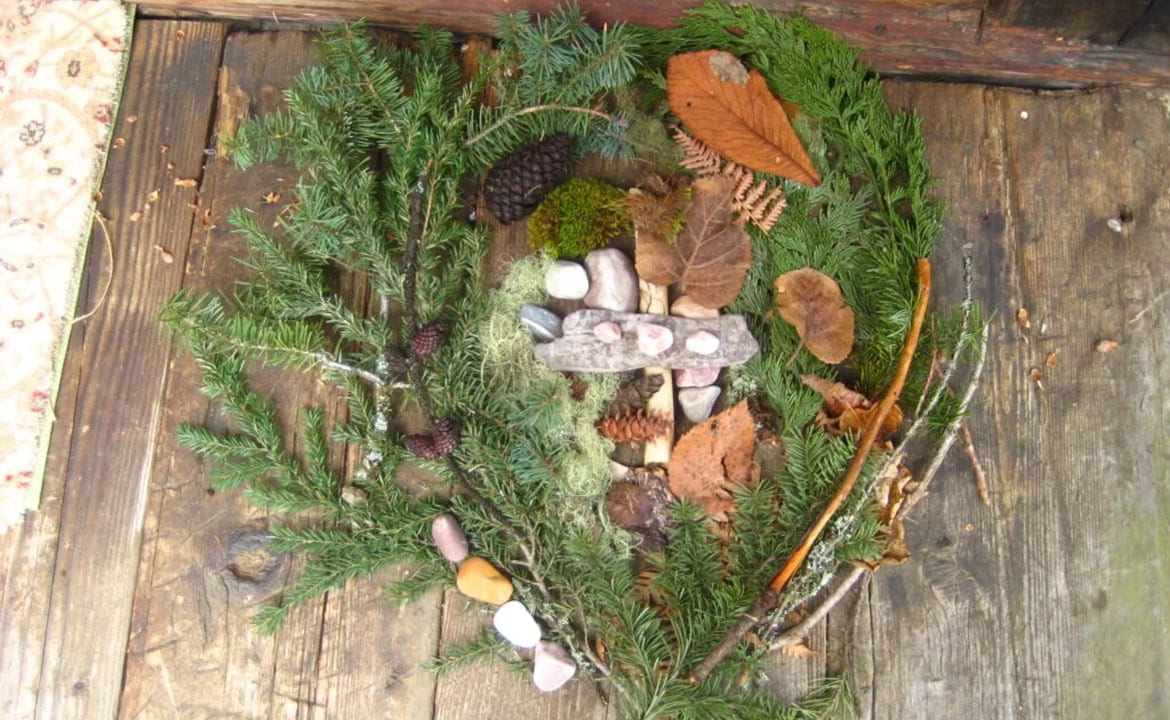
When I got there, I set up my laptop with a hard copy of the manuscript next to me. And as I’d heard the writer Lynda Barry suggest, I literally typed over my manuscript. I didn’t just edit on the computer—I opened a new document and started re-typing from page one.
I also wrote out timelines of my manuscript (it was so damn long, I could no longer keep straight what was happening) and taped them on the walls of my cabin. I bought a mandala colouring book and markers (what else do you do in an ashram?). I copied out meaningful quotes and drew around them. I created art on my cabin porch from pinecones, rocks, feathers, dried leaves. Sometimes I blasted music and danced. Sometimes I cried. And I wrote. The creative juices were cracking open and flowing with a force I’d never felt before.
Beyond what having the opportunity to just focus on writing does for the writing, another crucial thing happened at the ashram: I discovered a love for myself that I’d never felt before. I used to think loving myself meant booking massages, sleeping in, having dessert — in other words, indulging and pampering myself. Or it meant a sort of pat on the back: “Good job, Sabina, you cleaned those dishes well” (my karma yoga task at the ashram).
But what happened at the ashram went deeper.
Through all the yoga, the meditating, the satsangs, the workshops, the pine trees and mountains and lake, a by-product was developing: an internal tenderness that I’d never felt so solidly. A softness towards myself developed, one that made me feel softer towards others too.
It wasn’t a conscious choice or decision, and it didn’t happen from one day to the next, but the seed took root. And it’s stayed with me (mind you, I can still be cranky, harsh and annoying, but I no longer self-flagellate myself for it). The proof really came when my editor noticed the difference in the writing, when the omniscient narrator was no longer quite so snide or annoying.
Lesson 3: Loving myself influences my writing
I continued working on the manuscript, All That Therapy. I sent it out to publishers and agents, got rejected, edited it down, hired another editor, showed it to more people, got rejected again.
I googled famous authors and their rejection letter stories and felt better for a minute. People told me I was a real writer after receiving the rejection letters.
I heard someone say they were trying to collect 100 rejection slips. I stopped counting at some point.
Instead, I started a prequel: the mother’s story, the one who lost her baby. I don’t know if this novel will get published, but I did receive a generous grant from the Canada Council for the Arts for this project. I’m grateful I now have the time to immerse myself in the writing. I’ve rehired the same editor. I’m back at my desk every day, thinking of Gloria Steinem when she says, “Writing is the only thing that when I do it, I don’t feel I should be doing something else.”
My takeaway from the experience is to continue writing because I love it, because when I’m writing I never think it’s a waste of time. All That Therapy might never get published, but maybe the prequel will. And besides, what I’ve learned from it all is what I teach my students — simply to continue to write. And yes, I learned to take myself seriously as a writer, which was (is) crucial. But I’ve also made the next, more important step, of not taking myself too seriously. That, for me, has been the real message.
So, the lessons are simple — not easy, but simple: Love yourself. Laugh at yourself. And just keep going. Do. Not. Give. Up.
Sabina Walser was born in Switzerland, grew up in Washington DC, and has been living in Montreal for the past 30 years. She teaches English literature/creative writing at a local college. Writing and yoga – and recently learning Flamenco – are her passions.
